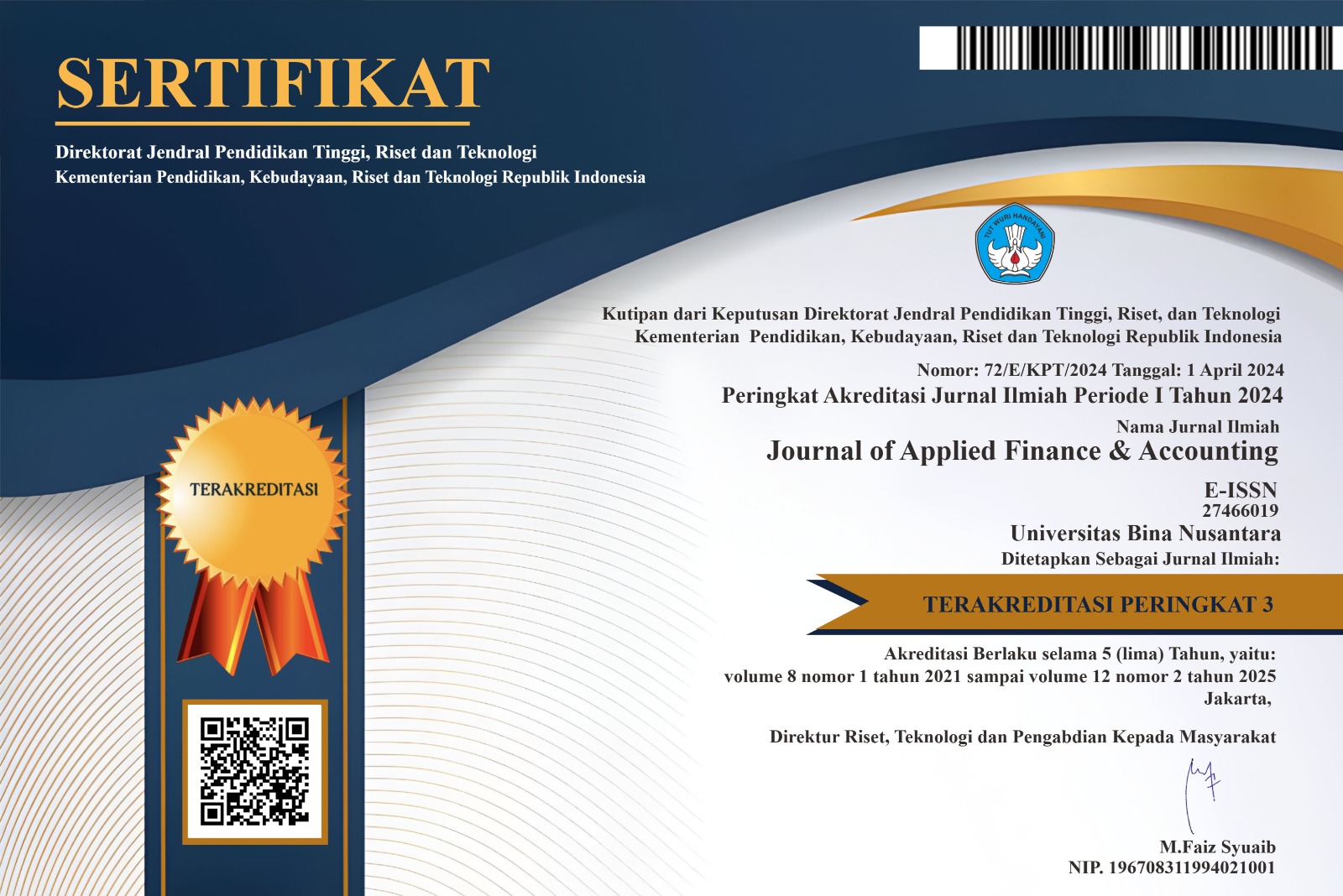EMPIRICAL STUDIES ON EVA AND PROFITABILITY RATIOS ASSOCIATION WITH ANNUAL STOCK RETURN FOR INDONESIA COMPANIES
DOI:
https://doi.org/10.21512/jafa.v4i2.283Keywords:
EVA, profitability ratios, profit margin (PM), return on sales (ROS), return on equity (ROE), return on assets (ROA), company annual stock return.Abstract
This research analyzes the influence of Economic Value Added (EVA) and profitability ratios measurement on Indonesian public companies stock returns. The companies are firms that are listed in the Indonesia Stock Exchange (IDX) and that take part in the LQ45 group. The profitability ratios that are used in this research are profit margin (PM), return on sales (ROS), return on equity (ROE), and return on assets (ROA). The aim of this research is to prove the claim that EVA is associated more with company annual stock return rather than profitability ratios. The methodology that is used in this research is a multiple regression test to measure the significance between EVA, profit margin (PM), return on sales (ROS), return on equity (ROE), and return on assets (ROA) with the company annual stock returns. The research result shows that in the end the research prove that EVA does not influence profitability ratios in association with company stock returns. The evidence indicates that profitability ratios are closely associated with company stock returns with the highest significance. More specificly, return on equity (ROE) is the most associated profitability ratio with stock returns followed by return on assets (ROA).
Downloads
Published
Issue
Section
License
Authors who publish with this journal agree to the following terms:
Authors retain copyright and grant the journal right of first publication with the work simultaneously licensed under a Creative Commons Attribution License that allows others to share the work with an acknowledgement of the work's authorship and initial publication in this journal.
Authors are able to enter into separate, additional contractual arrangements for the non-exclusive distribution of the journal's published version of the work (e.g., post it to an institutional repository or publish it in a book), with an acknowledgement of its initial publication in this journal.
Authors are permitted and encouraged to post their work online (e.g., in institutional repositories or on their website) prior to and during the submission process, as it can lead to productive exchanges, as well as earlier and greater citation of published work (See The Effect of Open Access).




